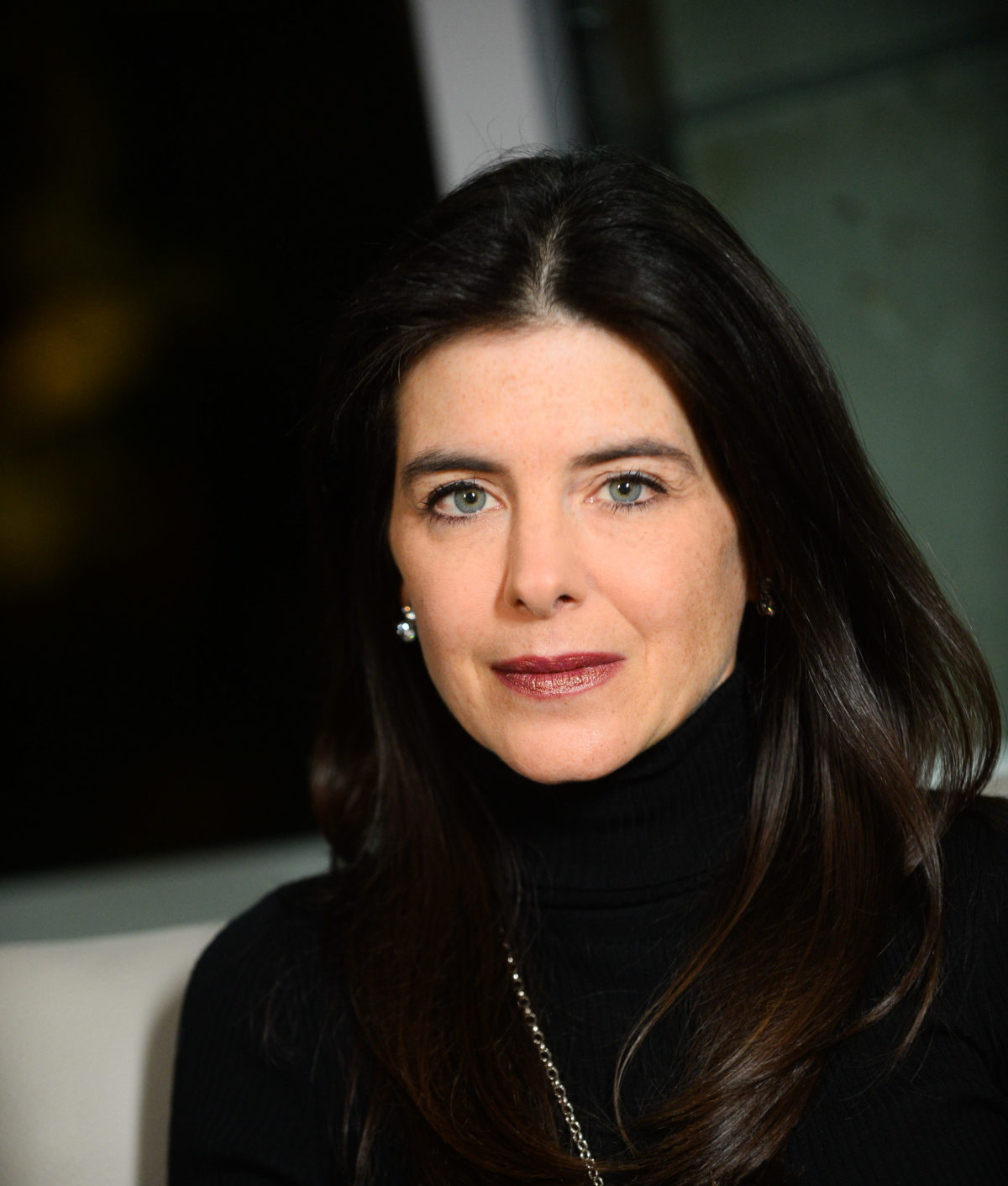
Terri Duhon Talks Determination, the Power of Failure and Why We Need Diversity in Financial Services
From trading derivatives on Wall Street, to running her own company, to writing a book and lecturing at Oxford University – Terri Duhon has traversed the length and breadth of financial services, experiencing successes along the way. In this article, Terri discusses those successes, but also how her failures have been her best opportunity to learn, and how cultural change and “diversity of thought” is the future for the financial industry.
You grew up in Louisiana, a far cry from the hustle and bustle of New York and Massachusetts. Did you always have dreams to move away? Where did your drive come from? Did anyone influence your thinking?
I always dreamed about going to New York City. It was the song that actually inspired me, “If you can make it there, you can make it anywhere.” But I was running toward something rather than running away from anything. I come from a large, supportive family in Louisiana that I still visit often. I don’t think they fully understand me or what drives me but they love me. And life feels simpler there and more grounded. It’s always a good reminder for me of what’s really important.
You went on to get a Math degree at MIT and went straight from there to being a trader at JP Morgan. When did you decide you wanted to be a trader and what inspired that?
I have always had, and still have, this very vague dream of doing something amazing when I grow up. And I was always slightly jealous of those who had such clarity around their dreams: doctors, lawyers or engineers for example. I was studying Math at MIT which doesn’t seem to lead anywhere other than academia, which wasn’t appealing at the time. But this was the early 90s, when Wall Street was looking for math and science degrees to work in the growing derivatives market. I knew a number of people who had gone to Wall Street before me and what they described was exciting. I also read Liar’s Poker. It was supposed to be a cautionary tale, which I appreciated, but what I loved was the high energy and innovation that seemed to be happening on Wall Street.
You spent almost 10 years at JP Morgan and moved up through the ranks very quickly. You were instrumental in developing the credit derivative market place. What was it like as a young woman working in that sort of environment?
I was definitely aware that there were very few women doing what I was doing, but I had come from the Math department at MIT which was only 10 percent female, and MIT overall at the time was only about a third female. So it wasn’t a new environment for me. I got more jokes about the fact that I came from MIT than the fact that I was a woman actually. A lot of people in financial markets at the time didn’t have university degrees so it was a bit of a joke that it required an MIT degree to trade what people had been doing for years already. And yes, there were a few inappropriate comments made every now and then but on the whole I loved the high energy and intense engagement of working on the trading floor. It was actually a load of fun and some of my greatest friends have come from those days.
What achievement made you most proud during your time there?
Hmmm. This is a difficult one unfortunately. I’m conflicted because I loved being part of the team that built the credit derivative business. We collaborated incredibly well at the time across the globe and across departments that don’t always work well together. I’ve always loved being part of a high-performing, functional team and we built a marketplace where one didn’t previously exist. We were very focused on managing risk in the early days and clearly missed the subtle shift in focus of the entire market away from managing risk toward leveraging as much as possible. As it happens, I left the trading floor in 2004 and was very disappointed in what eventually happened but I still have good memories of those early days.
After your stint at JP Morgan, you took a completely different route and opted to become an entrepreneur and run your own company. What were the reasons behind this career change?
I think I always wanted to become an entrepreneur, but with student loans and no financial support from home, I initially just needed a job, which as I’ve discussed, I had a lot of fun doing. Ultimately I always knew that the traditional corporate ladder wasn’t really for me. I can’t recall anyone in my family having a job where they had to wear a suit to work or even had such regular and long hours. And eventually a few things happened in my personal life which made me rethink what I was doing and set out on my own. It was scary as hell at first of course. But I eventually figured it all out and loved the experience; the highs and the lows.
Did it feel like a big risk moving from an established position in a global company to running your own business? Did the risk pay off?
It felt like a huge overwhelming risk. There is a sense that it’s crazy to leave a large successful corporate environment, especially in 2004 when there were far fewer start-ups in the financial markets space compared to today. I told myself I was doing it for more flexibility at the time but there was clearly a bigger driver for me. I loved the idea of building a business and also feeling like I was completely in charge of my own destiny. And the flexibility didn’t pan out at all. Clients’ demands always came first and building a business is more than a full time job. Evenings, weekends, holidays. Nothing was sacred really.
You were also involved with a few charities including the Prince’s Trust and Operation Smile UK. How does sitting on the board of a charity differ from sitting on the board of a major financial institution?
Being asked to sit on a charity board was a far easier achievement than getting to sit on a commercial board. Charity boards are open to people without board experience. They are looking for passion, dedication and often simple business experience and commercial sense to provide oversight of the charity. And often times of course charities look to their trustees to help with fundraising which sets them apart from commercial boards. Helping with fundraising blurs the non-executive line that most commercial boards don’t want board members to cross. Also, commercial boards have a “you can’t sit on a board if you’ve not sat on a board” barrier, which is very hard to get over.
I’ve seen you speak a few times about the importance and power of failure. Is there a particular failure that you are grateful for or that changed your direction?
Every failure was an excellent opportunity for me to learn. My first Wall Street interview was so bad it became a story around campus that spurred me to be uber-prepared for the next one. Basically being fired from the JPMorgan swaps trading desk, but getting the opportunity to join the nascent credit derivative team on the same day, made me embrace the business and really engage in a way that I hadn’t frankly done as an interest rate swap trader. My first client meeting when I started my own business was embarrassing and it was clear that I needed to work on my client proposition.
Life is full of these amazing opportunities to learn and I wish that we could hear more of these stories from successful people. We often only hear the highlights which is a little misleading and makes their success sometimes seem unattainable. When the truth is that few of us are perfect. Failure has been my best opportunity to learn. Of course, risk is scary but I couldn’t have hit my highs without my lows.
You’re now a non-executive director at Morgan Stanley International and chair their risk committee. Is this business as usual, or does the risk landscape change fast and if so what are the trends? What does success look like for this committee and what does the institution learn from its operation?
There is a lot of business as usual that occurs in a risk committee which is as it should be. We have risk frameworks and risk appetites, and various policies and procedures that are put in place and monitored such that risks and risk events are escalated and discussed in the right places. The risk committee sees a high level overview of these processes and reports at each meeting, which allows us to provide oversight and challenge to the executives. However, there is always something interesting on the horizon. For large investment banks issues like Libor replacement, operational resilience and electronification of the fixed income market, are super interesting and come with increased risk identification, escalation and occurrence. I guess it’s fair to say that finance is still innovating and evolving.
You made significant strides in a short time in the financial services industry. Did you ever feel your gender or your age was a barrier when you were starting out? If so, how did you overcome it?
Frankly, it would be hard to know if gender has ever been a real obstacle for me as few people are prepared to say something that explicit. Although recently I had an experience where I received some feedback that felt like a gender issue more than anything else given the circumstances. That was really disappointing and made me really angry. But another lesson learned. It made me give more thought to how I present myself in an interview to avoid that sort of feedback again, if possible because of course this was unconscious bias which can be tough to address sometimes.
What would you say has been the key to your success?
Determination is the big one. I don’t like to give up on much. It’s a bit like Dory: “Just keep swimming” even though everyone’s said no in some way, shape or form. This was true in building my business, in becoming an Associate Fellow at Oxford University, in sitting on boards. And I’m sure whatever I decide to do next will have a lot of “no” before I get to “yes”.
And second is about fear of failure. The truth is that I’m just as terrified as the next person but I don’t let it stop me. Even simple things like giving a talk that I’ve given a number of times before makes me nervous. Or posting something on LinkedIn. I think about it for a long while before I do it, then I don’t check LinkedIn for a long time because I’m nervous that I’ve put myself out there. Even this article which seems so easy to do will make me anxious when it’s published. Then there are the bigger things like interviews where I’m super keen or my first board meeting on a new board. I know my voice shakes and my palms get damp. Seems a bit silly at my age to be this insecure about anything, but there you are.
You’ve written in the past that there is an unconscious bias against women that says “girls aren’t good with numbers”. Is that something you’ve experienced first-hand? Do you think this perception is changing? What is the best way to overcome this?
It’s not something I’ve experienced because I was always good with numbers, it was liberal arts that were a challenge for me. And to be fair, studying Math at MIT gave me a huge advantage from that perspective. Few people questioned my analytical ability.
However, what I’ve seen over the years is a bias that occurs even in the interview process – where women even with technical skills are often told they would be great as salespeople because they are so good with people. That may be the case, but these women are also really good with numbers. And almost every job needs you to be good with people.
When I speak to high schools and ask the girls if they are good at Math, I get less than five percent raising their hand, when I’ve been told that the majority of girls in the room got As on their Math exams. How could they not think they’re good enough? It means we still have work to do.
You’ve spoken quite openly about wanting to see more women in financial services, what do you think is most inhibiting this at the moment?
The image of the industry is very testosterone-driven and has often been portrayed as very aggressive. Many people, men and women, self-select out of this type of environment although women more than men. And that is not what finance should be about at all. Finance has an important purpose in the world which people are just starting to think about. I’m hopeful that we can eventually change this image.
What are the benefits of increased diversity in financial services?
The ultimate goal of diversity is diversity of thought. This is an industry that needs to manage very significant and systemic risks which impact everyone and the best way to do that is to have a lot of diverse perspectives around the table that see the world differently and are prepared to challenge the status quo all the time.
But at the moment, we can approximate that diversity of thought with gender and race and social mobility because these individuals have a very different and often harder path to follow to get to a place at the table which gives them a diverse perspective.
What would you say has been the biggest change to the financial services industry?
The tech revolution that allowed algo/passive trading and electronification of the trading floors. We’ve moved away from humans making decisions about markets in a way that was hard to imagine twenty years ago when the idea was that it was possible to have a superstar trader who could almost always get it right. Today it is more common to assume that an algo can do it better because it can process so much more information and so much faster without emotion.
We’ve also taken away a lot of the human interaction. Most trades are placed on an app or by hitting a button rather than via a conversation with a salesperson of some sort. That is a huge change to a world that operated on the little bits of information that were exchanged in each of those transactions. We used to talk about “market color”, which was the synopsis of all the conversations banks had with clients in a certain asset class which could give the bank information asymmetry. That human engagement is almost gone in some markets.
And what change would you most like to see over the next five years?
Increased focus on culture, purpose and diversity. These are topics that have gotten a lot of attention over the past five years in the finance industry, which is good. But critics will claim it’s paying lip service to topics that are hard and complex to address. And I think there is some of that. So as an industry we need to do better.
What advice would you give to women who are considering a career in financial services?
We desperately need you and you won’t be alone on this journey. There are a lot of women (and men) today who are keen to help you on your journey.
And frankly, finance isn’t any better or worse than any other industry really. Most industries are predominantly led by men and while that is changing, it is slow and we need more diversity to really move forward.
When you’re not writing, or chairing a Board, or giving motivational speeches – how do you like to unwind?
I love reading sci-fi, fantasy and romance novels. My husband and I also have three kids and we love watching movies (Marvels, DC Comics, Harry Potter, Lord of the Rings, the new Star Trek and of course almost all animated movies) and playing cards and board games.
In 2012 you wrote a book entitled How the Trading Floor Really Works. What was the best book you read last year?
Outside of the random fiction that I use to wind down, I read non-fiction every now and then and the best was The Lost City of the Monkey Gods. Great story and fascinating perspective from the author.
What’s more important – hard work or talent?
There’s a quote on this that I really believe. Talent trumps hard work until hard work trumps talent.







